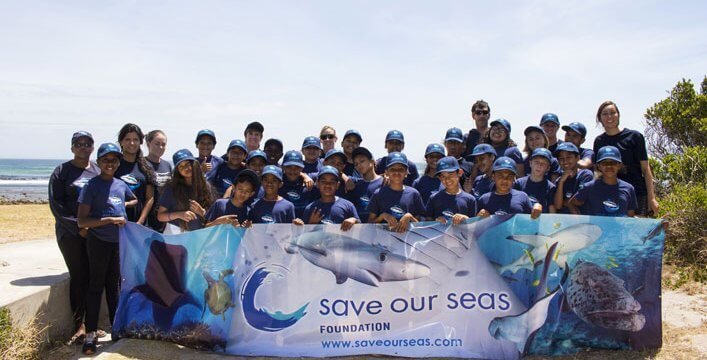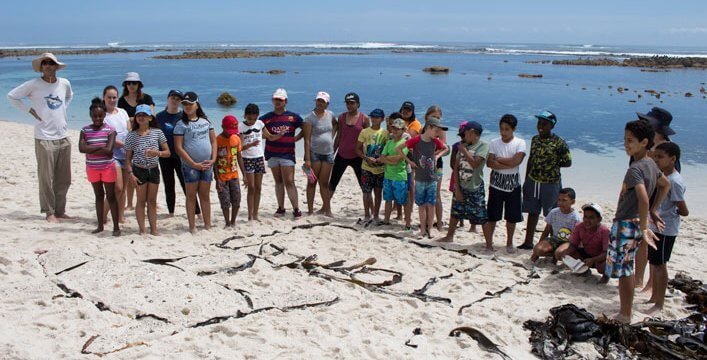
During the last year I worked on the education component of the project "The Galapagos Marine Reserve: A Model of Sustainable Coexistence between Humans and Sharks" with the support of the Save Our Seas Foundation (SOSF) and Lindblad-National Geographic. I mention this to tell you where this experience begins. SOSF has a Shark Education Center in Cape Town, which in turn has very important educational material for those who work on marine issues, especially focused on education. Throughout this year, we carried out the "Protect the Fins and the Ocean Wins" campaign on the Galapagos Islands and in August we had the presence of Michael Scholl, SOSF's Chief Executive Officer, who offered me the opportunity to travel to South Africa to exchange experiences and learn from the work that the education center team performs.
South Africa, a great opportunity for anyone working in the field of conservation! Since I arrived at the Center I was delighted with the place and of course with the people I met. Upon entering the place you can feel the ocean from very close through the decoration. There is a mini aquarium with fish, starfish, anemones and sea urchins that can be touched and others that can only be observed. The walls are blue and turquoise with painted fish and sharks. In addition, they present information, figures and material to play with that facilitates learning for those who visit the place. There is a telephone with different numbers and a representative South African species for each one, through which you can call any of these animals and you can hear different voices with the most relevant information about them. To complement this material, there are two interactive games. The first allows you to feel like a shark by seeing through a 3D viewer while you try to hunt a fish using the senses, you can even smell your prey, very interesting! The second game allows you to manage a boat with which you must find sharks and when you do it, you can get information, photos and videos of different species.
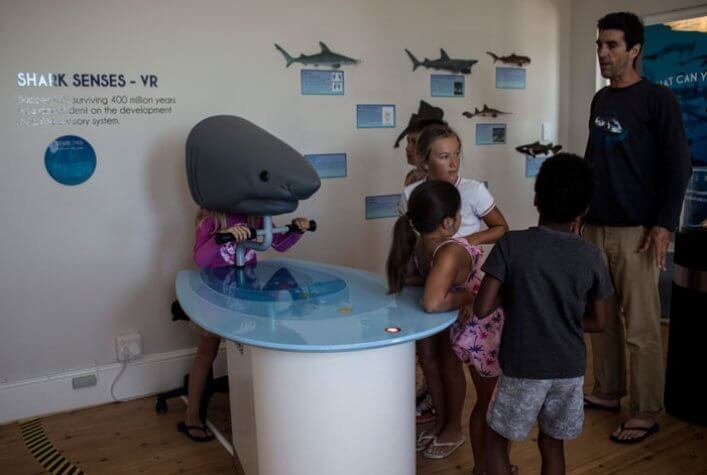
This is the center in which I spent three weeks, but during this time I also got involved in the activities they had planned. I met members of the center's education team and the SOSF communication team. All of them wonderful people from whom I learned many things and who have been very kind since I arrived. The next day of my arrival we snorkeled with the "Marine Explorers", a group of children with whom they have worked throughout the school year. At this activity we saw kelp forests, an octopus and other small animals. The next week we went snorkeling elsewhere and we were able to observe penguins and other seabirds. During the second week I went to a summer camp organized by the education team with students between 8 and 13 years of Muizenberg school. A group of very active children! Among the activities we had a hike to observe seabirds, a night walk, we visited the oldest lighthouse in South Africa, the children cooked potjiekos (stew cooked in a steel pan) which was very delicious by the way; games and competitions were developed on the beach and every day there were different presentations. Among these, a talk about birds, another about sharks and marine species, and also I had the opportunity to make a presentation about the Galapagos Islands and the campaign on sharks that we developed during 2016. The children were delighted with the species that we can find in the Galapagos, some even mentioned that someday they want to volunteer in the archipelago!
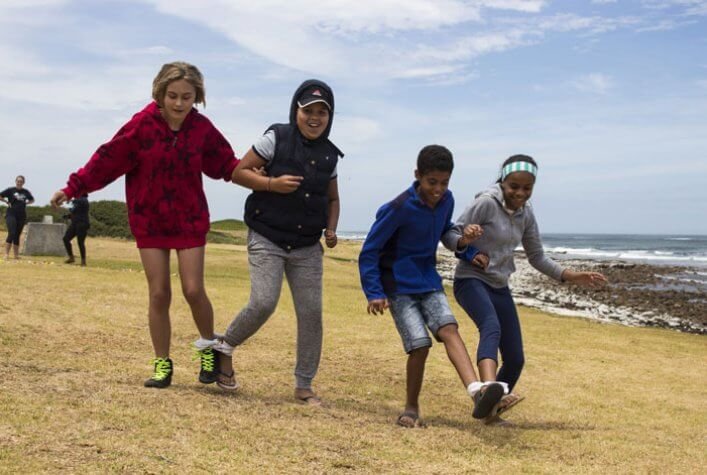
These kinds of exercises in the field allow us to strengthen the link between people and the sea through fun. Sometimes we think that by living in a place close to the sea, we have an implied close relationship that makes us want to take care of what surrounds us, however, we can still find people who do not know how to swim or who have not been in contact with marine species in their natural habitat. This is key because it is difficult for us to want to take care of something that we do not know just because they tell us that is what we should do. While, if we motivate people, whether they are children, young people or adults to swim, snorkel, dive, surf or do any other activity at sea, we will realize the life that exists in it and the importance of taking care of it. We did two coastal cleanings that I found very interesting because the children could see the amount of plastic that comes to the shores and made an analysis of how this garbage could reach the sea and how this can affect the animals.
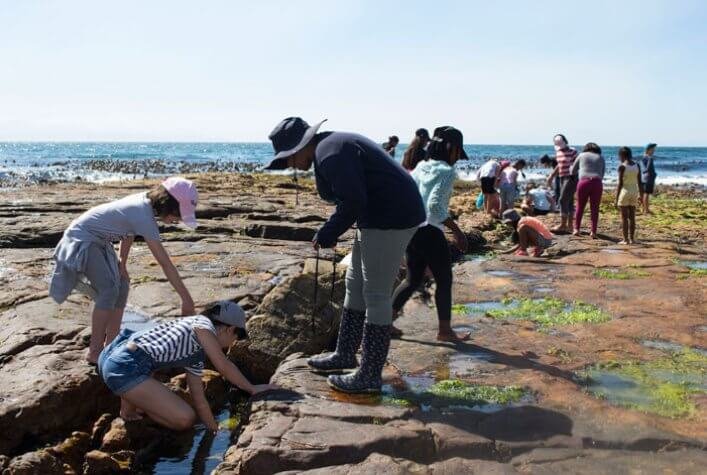
Of course the realities that are lived in the two places are very different. Cape Town is a large city, with a lot of history and a population of more than 3 million inhabitants, but it has beautiful natural places to work with children. Galapagos, for its part, is a small place with a more accessible public to work with. In addition to being a site surrounded by sharks, sea birds, rays, iguanas and more animals both marine and terrestrial. We also have the advantage of being surrounded by the Pacific Ocean, whose temperature gives us the facility and access to observe closely a large number of species in different areas. In the archipelago we have all the natural tools to work in environmental education so that the learned contents will help to strengthen this component and be able to continue to involve the community in the different projects we carry out.
